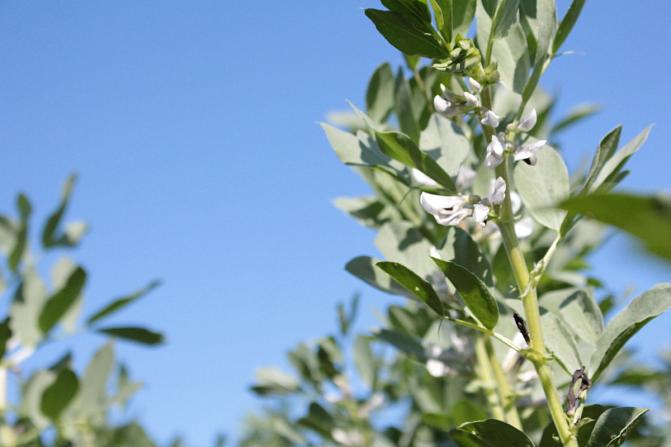
Genomic era of crop improvement
On this page
The emergence of complete genome sequences for crop plants is transforming the possibilities for crop improvement open to breeders. The Natural Resources Institute (Luke) is on the front line of the crop genome revolution, being currently a major partner in two international projects, for faba bean and oat. These will enable development of future-ready crops.
Plant breeding currently faces unprecedented challenges. Major crops such as wheat and barley showed dramatic improvements since the advent of modern breeding at the beginning of the 20th Century but reached a “yield plateau” around 2010. The stress factors, pests, and diseases made worse by climate change negatively affect yield. Together with these, future decreases in fertilizer and pesticide use will further challenge yield and quality delivery.
Simultaneously, new and improved crop qualities are needed for delivering food products to the marketplace that are nutritionally enhanced and suited for processing e.g. for meat analogs. As climate change affects Europe differently in different regions, crop diversity to supplement the mainline staples are needed for food and nutritional security achieved through varied diets. The diverse minor crops each require their own efficient breeding programs.


Pan-genomes and the power of genomic tools
To meet the multitude of urgent challenges facing plant breeding, new and efficient tools are needed. Today and in the future, breeders will need to exploit both detailed explicit information on how genes make the plant and its crop and how different allelic forms of the genes contribute to trait differences, as delivered by genomics and crop modeling.
“Well-assembled crop genomes make this possible. We thereby discover all the genes in the plant together with their predicted function, what variations (alleles) are present in germplasm, and their physical and genetic position”, describes research professor Alan Schulman from Luke.
Because the gene content of any one crop variety differs even 25% from the next, Luke’s oat and faba projects are delivering “pan-genomes”, where high-quality versions of tens of individual genomes are produced. These can then be compared to reveal the changes in, or total loss of, individual genes, as well as expansions in gene families. These changes are often connected to natural selection or to the plant breeding process and therefore are deeply informative.
“The faba bean and oat pan-genomes will enable us to identify candidate genes for traits of interest, such as determining nutritional and processing quality, disease resistance, yield and agronomic traits in both crops”, Schulman says.
“The pan-genomes greatly accelerate hunting the genes for such traits, reducing the time from the ten years it took for us to identify a resistance gene in wheat (Yr15) in the pre-genome era to the year it took us to identify the key synthetic gene for vicine, and the months it took for seed size and dwarfing traits in faba bean using the new genome data.”
In pan-genomes high-quality versions of tens of individual genomes are produced. These can then be compared to reveal the changes in, or total loss of, individual genes, as well as expansions in gene families.
Gene editing for crop improvement
Gene editing especially benefits from the availability of a pan-genome. The target gene as well as potential off-target sites can be identified, and the editing tools adapted to match the target gene precisely. The target genes can then be edited to create new alleles not available in the breeders’ gene pool, thereby conferring new and desired traits to the plant. Pan-genomes also enable effective exploitation of knowledge from model plants. Genes identified in the model plant for traits of interest in the crop can be found directly by using its sequence. Gene editing can then be used to verify gene function in the crop, as well as to model the needed alleles based on the model plant. With the increasing likelihood that use of gene editing will be liberalized in the EU, available pan-genome data becomes especially important.
Plant genome data are revolutionizing the ability of plant breeding to meet the sustainability and quality challenges ahead. For that reason, extensive pan-genomes are now available for wheat, barley, maize, rice, soybean, and tomato. The oat and faba bean pan-genomes will make a major contribution to this set of important species.

